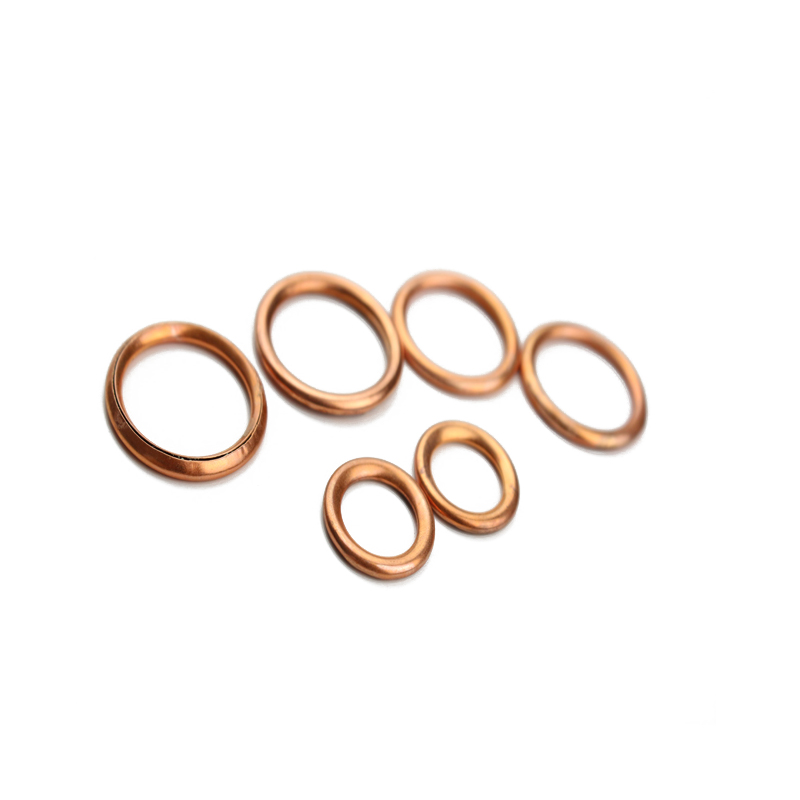High-Quality Valve Oil Seals for Optimal Performance
Understanding Valve Oil Seals Importance and Functionality
Valve oil seals are critical components in various mechanical systems, particularly in internal combustion engines and industrial machinery. These seals play an essential role in maintaining the efficiency and longevity of engines and other equipment by preventing oil leaks and ensuring that the lubrication system functions optimally.
At their core, valve oil seals are designed to fit over the valve stems, creating a barrier that prevents engine oil from entering the combustion chamber. This is crucial because excessive oil in the combustion chamber can lead to numerous problems, including increased oil consumption, diminished engine performance, and higher emissions. The design of these seals allows them to withstand extreme temperatures and pressures, making them essential for maintaining the engine's overall health.
The materials used in manufacturing valve oil seals are varied, with rubber and silicone being the most common due to their resilience and flexibility
. High-quality seals are engineered to resist not only wear and tear but also the harsh chemical environment often found in engines. Over time, however, even the best seals can degrade due to factors such as heat, exposure to oil, and general wear. Routine maintenance is necessary to ensure these seals remain effective; otherwise, a faulty seal can lead to a host of engine issues.valve oil seal

One common symptom of a failing valve oil seal is the noticeable presence of blue smoke coming from the exhaust. This indicates that oil is seeping into the combustion chamber and burning alongside the fuel, which can lead to higher emissions and could potentially damage the catalytic converter. Drivers may also notice decreased engine performance and increased oil consumption. Addressing a failing seal early can prevent costly repairs down the line.
Installation of valve oil seals requires precision and care. It is crucial to ensure that the seals are fitted correctly to prevent leaks. Improper installation can lead to misalignment, which compromises the seal's ability to function effectively. Mechanics often recommend replacing valve oil seals during major engine overhauls or when performing valve jobs to avoid future issues.
When considering replacement parts, quality is paramount. Opting for OEM (Original Equipment Manufacturer) seals can provide peace of mind regarding the part's reliability and compatibility with the engine. Many aftermarket options are available as well, but it's essential to research their performance reviews to ensure they meet industry standards.
In summary, valve oil seals are a small but mighty component of any combustion engine. They are pivotal in preventing oil leaks, ensuring that the engine operates efficiently, and maintaining performance standards. Regular maintenance checks can help detect early signs of wear, allowing for timely replacement and avoiding costly repairs. Understanding the importance of these seals can lead to better vehicle care and a prolonged engine lifespan. Whether you are a mechanic or a vehicle owner, familiarizing yourself with valve oil seals is crucial for maintaining engine health and performance.
-
Understanding Different Types of Oil Drain Plugs: A Comprehensive Guide
News Jun.27,2025
-
The Role of Nylon Washers in Oil Drain Maintenance: A Practical Guide
News Jun.27,2025
-
The Essential Guide to Drain Plug Washers: Types, Uses, and Best Practices
News Jun.27,2025
-
Everything You Need to Know About Washer and Plug Sealing: Polaris-Specific and General Tips
News Jun.27,2025
-
A Comprehensive Guide to Different Types of Oil Drain Plugs for Efficient Maintenance
News Jun.27,2025
-
A Complete Guide to Oil Drain Plug Washers: Tridon and Euro Car Parts Solutions
News Jun.27,2025
-
Understanding Oil Drain Plugs: Types, Issues, and Replacements
News Jun.26,2025
Products categories















